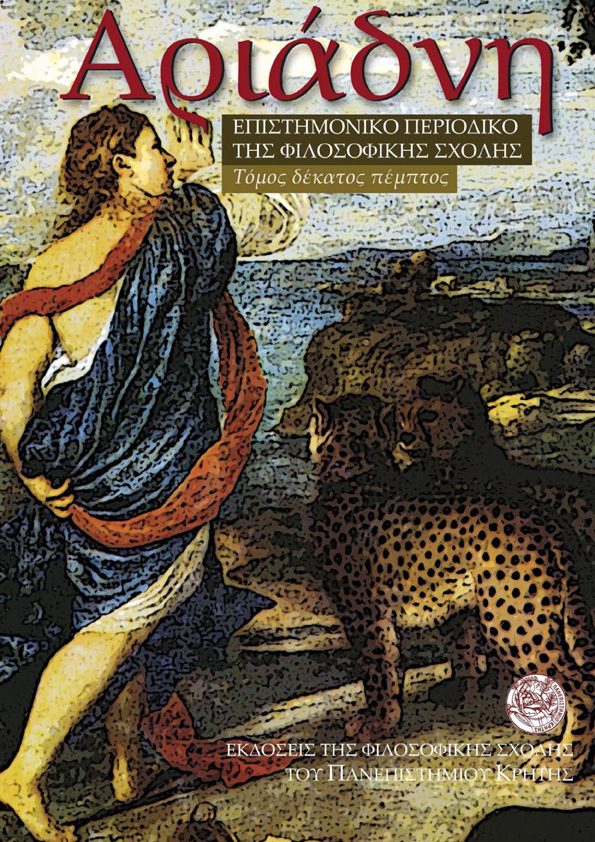The republican ideal and the external legislator: Ethics and politics ίn Kant's thought
DOI:
https://doi.org/10.26248/ariadne.v15i0.918Abstract
ΚΑΝΤ'S political thought focuses οn the ideas of representation and the public use of reason. If the exact political significance of the former concept cannot be overstated, its philosophical meaning remains ambivalent, while the latter is grounded οn an ethical ideal which does not become fully explicit prior to the mature work Religion within the limits of reason alone. Many recent commentators have stressed the importance of this text and its crucial role for an adequate understanding of Kant' s political theory: his "theological" notions of radical evil and corpus mysticum are requisite for any possible ethical legitimization of political concepts and practices, which are bound to be heteronomous. The contrast between the perspective of the Religionsschrift and the Perpetual Peace offers useful insights into Kant's vision of political society, the role of the ethical community therein and the understanding of the notion of republicanism as an ongoing process rather than a fixed state.
Downloads
Published
How to Cite
Issue
Section
License
Authors retain copyright and grant the journal right of first publication with the work simultaneously licensed under a Creative Commons Attribution-NonCommercial-ShareAlike 4.0 International License that allows others free use of the work for non-commercial purposes as long as the author/s and the journal are attributed properly and the new creations are licensed under identical terms (Creative Commons Attribution-NonCommercial-ShareAlike 4.0 International License).


